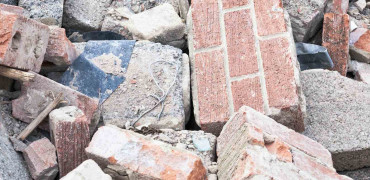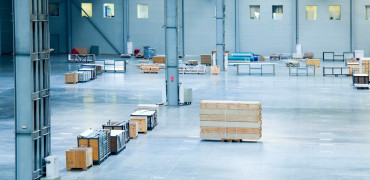With Covid guidelines now non-existent in the UK and companies looking firmly ahead to life after the pandemic - what are our working life options?
Well probably the following…. A full return to working offices, a continuation of remote working from home, or a hybrid mixture of both.
As we move through 2022 Covid cases are the highest on record and precautions are sadly lacking along with Government guidance.
It’s therefore imperative that companies remain flexible in how they individually shape the future of work in their particular offices.
Regardless of the comments from Government Ministers on the need for the Civil Service to ‘get back to work’, working from home (WFH), shorter working weeks and flexible office space have been applauded by human resource experts.
It is considered that a flexible home working approach is not only beneficial to our health but also the environment.
So we have to ask, will there be a mass return to traditional working offices?
The pandemic has highlighted the inadequacies in our routined existence
What about productivity?
2021 was the year that we all remained remote. A huge proportion of those home workers reported that they were as productive or more productive compared to office based work.
Many remote workers also feel that since the pandemic, working from home is better for their mental health.
Almost all suggested that working from home made them both happier and less stressed. They would even consider a pay cut if able to continue to do so.
Many employees have now acclimatised to working from home or at the very least a hybrid version. These workers are experiencing many benefits, economical, health, mental wellbeing and increased family time.
In fact the pandemic that we are all still living through, regardless of our standing in society, has highlighted the inadequacies in our routined existence.
Improving sustainability
How we travel to work and the time spent commuting, how we work, how our children are educated, our food security and the impact our daily lives and our movements have on our planet, are all being questioned as never before.
As a result of Covid, many cities are improving urban sustainability. The once imperative commute is now questionable. New technologies are being implemented to support work from home models. Cycle lanes and green areas are reclaiming the road space and replacing the concrete.
During the pandemic we have also seen city migration like never before.
Our concerns surrounding Covid are continually entwined with the climate crisis, and with a focus on air quality, the need for fresh air and green spaces has never been more important and pressing.
A more thoughtful approach
Energy self-sufficiency and the reduction of carbon emitting living practices gives us an opportunity to promote a different life that is, if not mainly, then increasingly focused on ecology, a more thoughtful approach to our footprint.
2020 and Covid have changed how we perceive our cities, staying at home to work has forced us to rethink our spaces.
Large cities have begun to lose their appeal and the countryside has become more and more popular.
Green spaces, fresh air and the hope of better mental health alongside reduced stress is, of course, attractive.
Transport challenge
With several national lockdowns firmly under our belts and with offices being shut for most of 2020 the Department of Transport has noted a 38% increase in cycling since before the pandemic.
With our drive towards Net Zero, transport is without doubt one of the most challenging sectors to tackle.
Our car dependent lifestyles along with roads, vehicles and heavy use of fossil fuels are truly embedded in all walks, rather journeys of life.
One obvious way to reduce our transport emissions will be to continue the trend to WFH and technology will play a pivotal part here.
A thing of the past?
There is a growing confidence that this will be viable as technology and video conferencing becomes seamless.
Even the big Tech giants who have always advertised their “alternative” working spaces are nimbly embracing the WFH model with Amazon offering this as an option to many.
At Twitter it can be a permanent move and even many of the city banks will not be returning to the traditional model.
It appears that the once big city may actually become a thing of the past. ‘FTSE 100 firms share latest London office plans following WFH year, with many set to embrace flexible working
A number of FTSE 100 companies have told the Evening Standard that flexible working plans are being looked at for post-pandemic’
How will this impact on our cities is not fully clear yet, but one thing does seem certain and that is how unlikely it is that we will all be rushing back to the Monday to Friday, 9 to 5 style operation.
And with an urgent climate crisis to focus on, this examination of the impact of work on the environment can be no bad thing.
Kirsty Hammond is editor of Specifier Review




